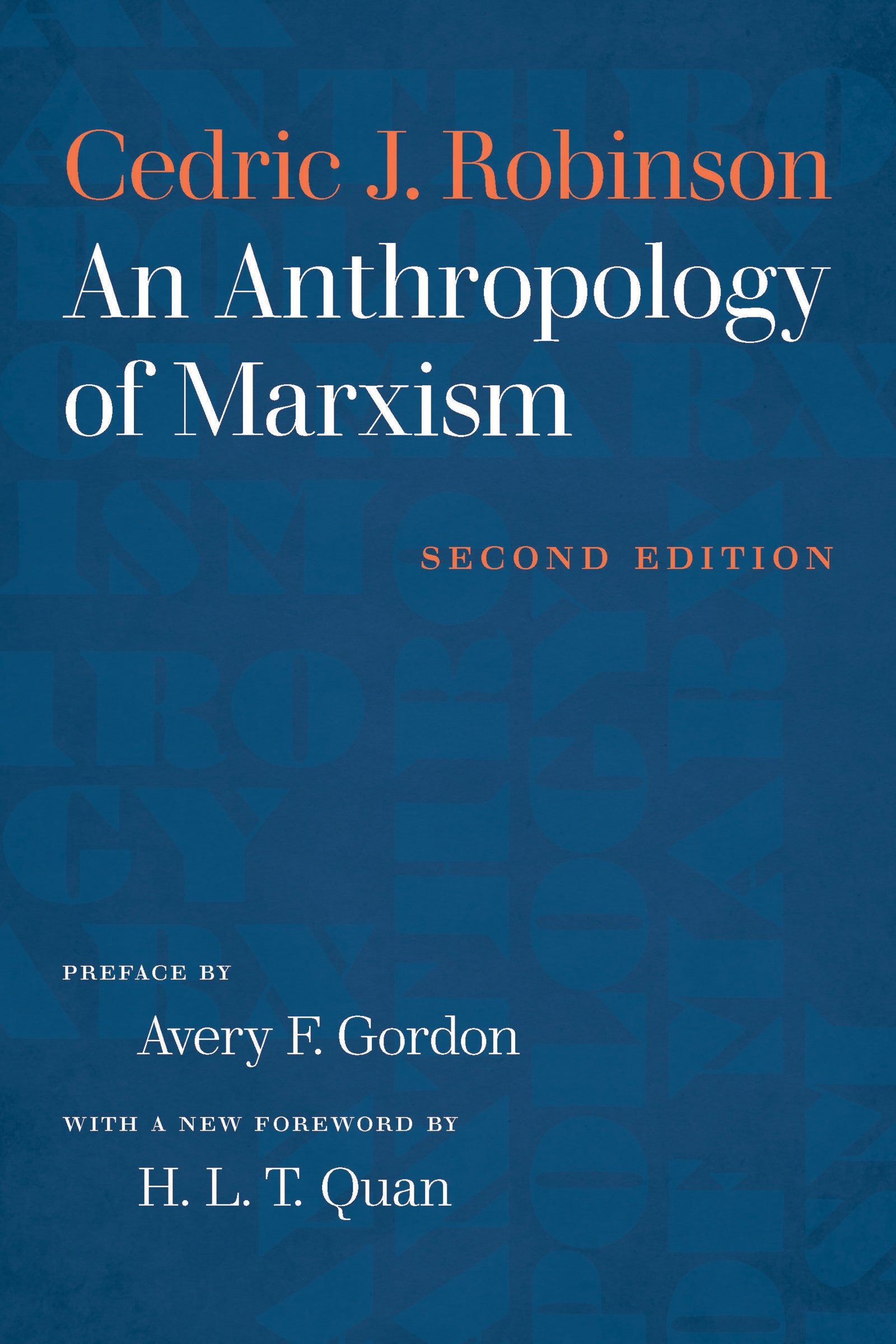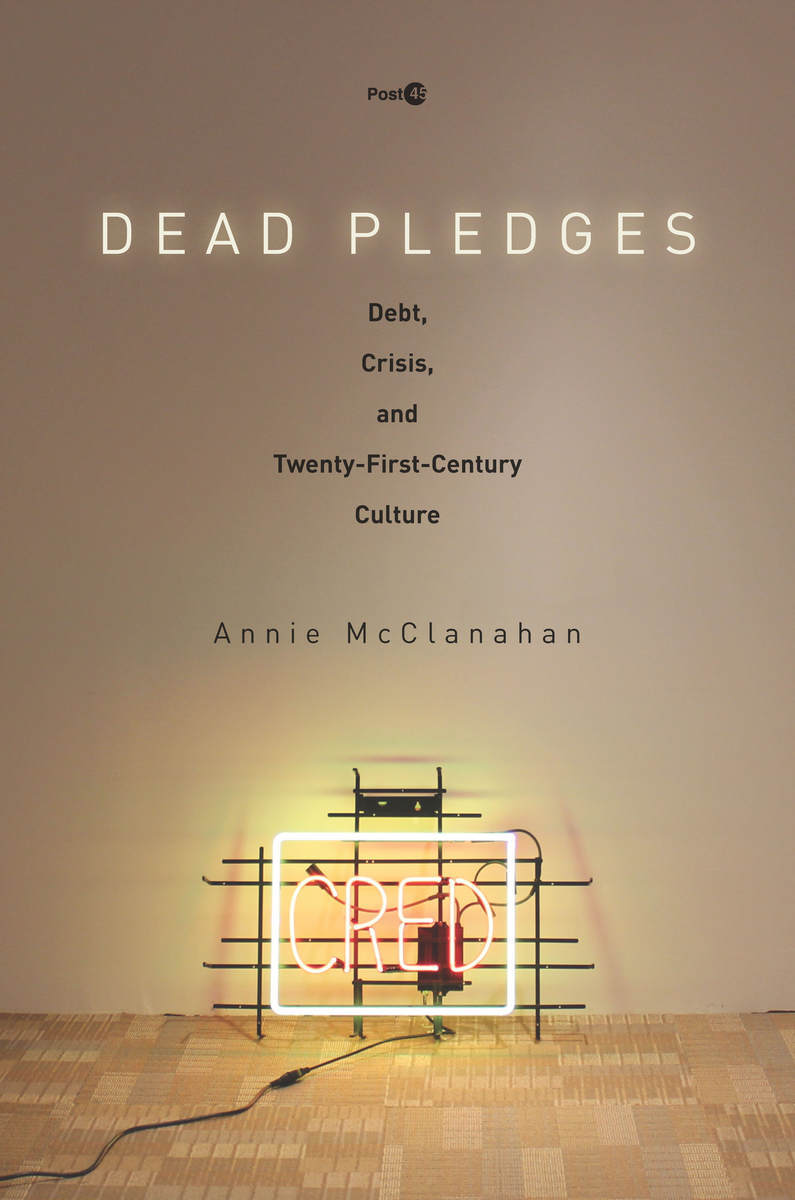Cedric J. Robinson: An Anthropology of Marxism (2001–)
Filed under book | Tags: · black people, capitalism, communalism, communism, community, economics, marxism, materialism, philosophy, race, socialism, society

“An Anthropology of Marxism offers Cedric Robinson’s analysis of the history of communalism that has been claimed by Marx and Marxists. Suggesting that the socialist ideal was embedded both in Western and non-Western civilizations and cultures long before the opening of the modern era and did not begin with or depend on the existence of capitalism, Robinson interrogates the social, cultural, institutional, and historical materials that were the seedbeds for communal modes of living and reimagining society. Ultimately, it pushes back against Marx’s vision of a better society as rooted in a Eurocentric society, and cut off from its own precursors. Accompanied by a new foreword by H.L.T. Quan and a preface by Avery Gordon, this invaluable text reimagines the communal ideal from a broader perspective that transcends modernity, industrialization, and capitalism.”
Preface by Avery F. Gordon
Publisher Ashgate, 2001
ISBN 1840147008
xxii+169 pages
Second edition
New foreword by H. L. T. Quan
Publisher University of North Carolina Press, Chapel Hill, NC, 2019
ISBN 9781469649917, 1469649918
xxix+171 pages
Commentary: Avery F. Gordon (Race & Class, 2005).
Review: Rose Deller (LSE Rev of Books, 2019).
Publisher (2nd ed.)
WorldCat (2nd ed.)
PDF (1st ed., 2001, 9 MB)
PDF (2nd ed., 2019, 2 MB)
See also Robinson’s Black Marxism: The Making of the Black Radical Tradition (1983).
Comment (0)William Davies (ed.) Economic Science Fictions (2018)
Filed under book | Tags: · automation, capitalism, dystopia, economics, economy, luddism, money, neoliberalism, science fiction, utopia

“From the libertarian economics of Ayn Rand to Aldous Huxley’s consumerist dystopias, economics and science fiction have often orbited each other. In Economic Science Fictions, editor William Davies has deliberately merged the two worlds, asking how we might harness the power of the utopian imagination to revitalise economic thinking.
Rooted in the sense that our current economic reality is no longer credible or viable, this collection treats our economy as a series of fictions and science fiction as a means of anticipating different economic futures. It asks how science fiction can motivate new approaches to economics and provides surprising new syntheses, merging social science with fiction, design with politics, scholarship with experimental forms.
With an opening chapter from Ha-Joon Chang as well as theory, short stories, and reflections on design, this book challenges and changes the notion that economics and science fiction are worlds apart. The result is a wealth of fresh and unusual perspectives for anyone who believes the economy is too important to be left solely to economists.”
Contributors: AUDINT, Khairani Barokka, Carina Brand, Ha-Joon Chang, Miriam A. Cherry, William Davies, Mark Fisher, Dan Gavshon Brady, Owen Hatherley, Laura Horn, Tim Jackson, Mark R. Johnson, Bastien Kerspern, Nora O Murchú, Justin Pickard, James Pockson, Tobias Revell, Judy Thorne, Sherryl Vint, Georgina Voss, Jo Lindsay Walton, Brian Willems.
Publisher Goldsmiths Press, London, 2018
ISBN 9781906897680, 1906897689
xiv+383 pages
Reviews: Anna Nguyen (LSE Review of Books, 2018), Justin Reynolds (New Socialist, 2018).
PDF (15 MB)
Comment (0)Annie McClanahan: Dead Pledges: Debt, Crisis, and Twenty-First-Century Culture (2016)
Filed under book | Tags: · affect, art criticism, capitalism, debt, economics, finance, financial crisis, horror, literary criticism, mediation, mortgage, photography, property

“Dead Pledges is the first book to explore the ways that U.S. culture—from novels and poems to photojournalism and horror movies—has responded to the collapse of the financialized consumer credit economy in 2008. Connecting debt theory to questions of cultural form, this book argues that artists, filmmakers, and writers have re-imagined what it means to owe and to own in a period when debt is what makes our economic lives possible. Encompassing both popular entertainment and avant-garde art, the post-crisis productions examined here help to map the landscape of contemporary debt: from foreclosure to credit scoring, student debt to securitized risk, microeconomic theory to anti-eviction activism. A searing critique of the ideology of debt, Dead Pledges dismantles the discourse of moral obligation so often invoked to make us repay. Debt is no longer a source of economic credibility, it contends, but a system of dispossession that threatens the basic fabric of social life.”
Publisher Stanford University Press, 2016
Post ’45 series
ISBN 9780804799058, 0804799059
ix+235 pages
Reviews: Brian Whitener (The New Inquiry, 2017), Sofia Cutler (LA Review of Books, 2017), Julian Murphet (Affirmations, 2017), Davis Smith-Brecheisen (Mediations, 2017), Arne De Boever (boundary2, 2017), Laura Finch (Journal of Cultural Economy, 2018).
Comment (0)
